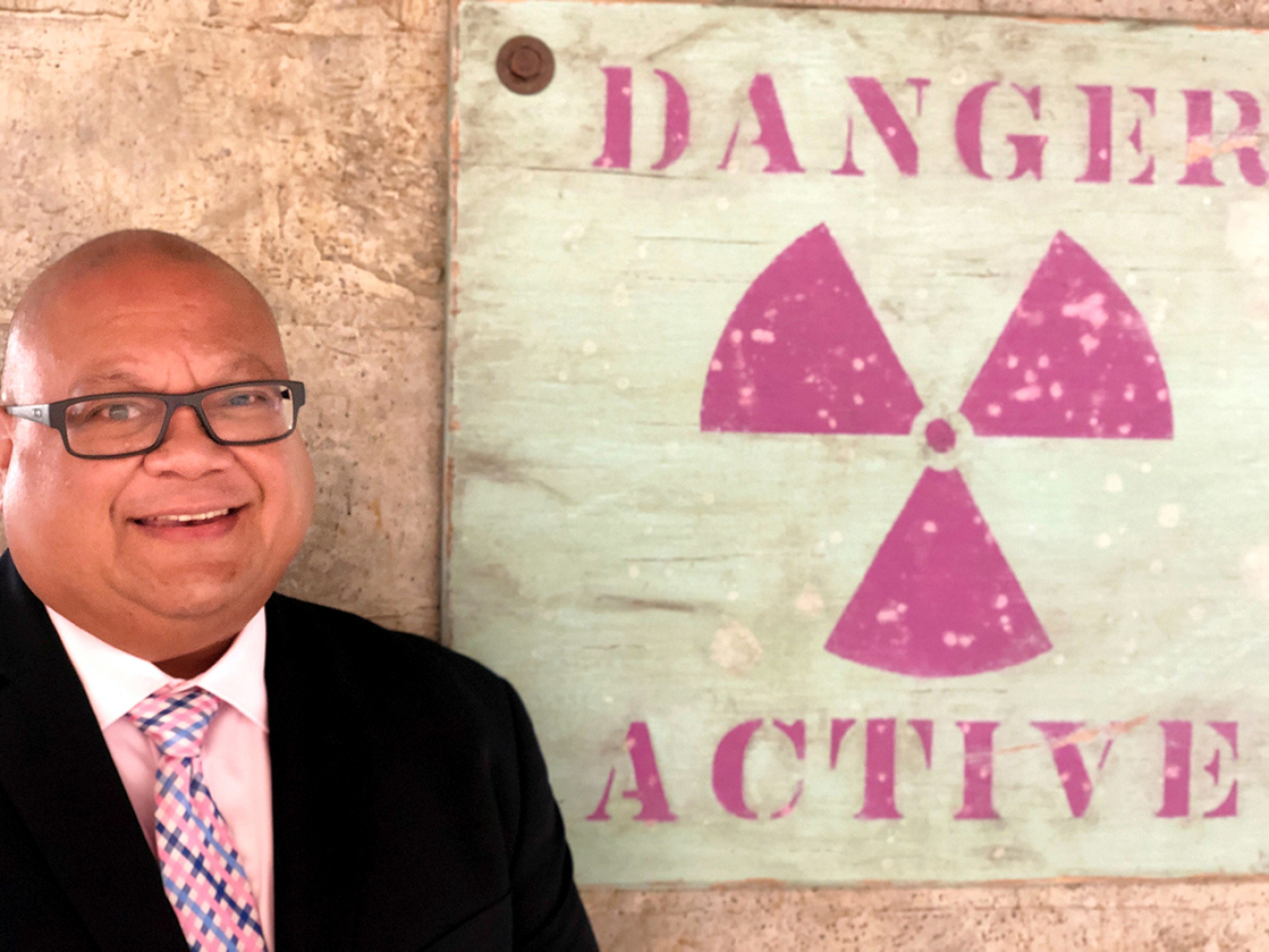
Rodrigo (Rod) Rimando is a Senior Site/Field Liaison in the Office of Environmental Management. He's shown here at the Energy Department's museum.
May is Asian American Pacific Islander Heritage Month! To celebrate, we’re highlighting a few of the people at the Energy Department who are helping to change the world.
1. What’s your job title and how long have you worked at the Energy Department?
I am Senior Site/Field Liaison in Office of Environmental Management. My DOE career started in 1995 while my civil service career began in 1987 with the Defense Department.
2. What inspired you to work in your field?
In my youth, I was fascinated with Robot in Lost in Space TV series and later with R2-D2 and C-3PO in the Star Wars movie franchise. Unfortunately, robotics was not an academic degree in the early 1980s and those studies were certainly not going to land me a job. So, I had to settle on atomic (nuclear) physics, which is my undergraduate degree. Notwithstanding, robotics remains a fascination and inspiration – both personally and professionally.
3. What’s the most exciting part of your job?
I truly enjoy working with young and early-career professionals. The generational differences have forced us to approach civil service recruiting and retention differently. I take full advantage of each and every opportunity I have to engage with that next workforce generation. In doing so, I rarely offer career advice. Instead, I share perspectives and provide insights.
4. Do you have any words of advice for people looking to enter your field?
The cleanup mission of EM spans just about every professional discipline in both technical and non-technical fields. Our mission will take well over 60 more years to complete; as such, it will take the skills and talents of at least two more workforce generations to complete. So, if you are interested in a career from which you can retire and all the while making meaningful contribute to environmental resilience and national security, consider EM.
5. How has your heritage shaped the person you are today?
The Republic of the Philippines is an archipelago of over 7,600 islands in the Pacific Ocean. The Philippines is truly a mix of many, many ethnicities originating from mainland Southeast Asia, Japan, China, the Indian subcontinent, and even the Arabian Peninsula. Spain and the U.S. had major influences on the culture of the Philippines. Understandably, there are 8 major dialects and upwards of 180 languages throughout the Philippines. Collectively, those melting pot influences shaped my parents, both of whom immigrated professionally to the U.S. and, in turn, shaped me.
6. Does your family have any traditions that are especially important to you?
Family, friends, food, and foolishness! The bonds of family and friends are truly unbreakable among Filipinos. We are generally excellent cooks and are equally excellent eaters. We live big with a bit of fun and mischief. Growing up, I recall all-night get-togethers playing mahjong with the kitchen “always open” and plenty of rice, pancit and lumpia on hand.
7. What are some interesting hobbies or talents that most people may not know about you?
I studied Shōrin-ryū (Okinawan martial art) and Arnis (aka, Eskrima – a Filipino martial art) as well as wrestled in high school. I played the trombone as a cadet in the Regimental Band at The Citadel, Military College of South Carolina. Over time, I gave up my nunchakus and escrima sticks for skewers and chop sticks and I gave up my brass instrument for stainless steel cooking utensils. Armed with the secrets of Filipino cuisine from my mother and having “worked” for my father who is a chef, the very early years of my employment were spent in restaurant kitchens. I have the physique to prove it.
8. What’s your favorite book or podcast?
Marvel and DC superhero comic books – the original ones from the 1960s. What’s a podcast?
9. Which historical figure do you admire the most and why?
Lee Jun-fan (Bruce Lee). Aside from being a martial arts icon and “superhero,” particularly on the big screen, Bruce Lee was a philosopher, entrepreneur, and broke many western stereotypes of the Asian male. As a Hong Kong-American, we was actually born in San Francisco, raised in Hong Kong, and educated at the University of Washington (Seattle). He challenged the taboo of inter-racial marriage by marrying a native Washingtonian. My own true love is a born-and-raised Southern Bell from Charleston (South Carolina). Bruce Lee remained true to himself and constantly challenged (physically and figuratively) the status quo. But, why do I really admire Bruce Lee? His one-inch punch and his Game of Death yellow jumpsuit, which I had my own version.
10. What does Asian American Pacific Islander Heritage Month mean to you?
It’s another celebration and reminder that a very large majority of Americans have ancestral roots that extend well beyond the borders of the U.S. During his first inaugural speech, President Clinton said, “There is nothing wrong with America that cannot be cured by what is right with America.” Asian American Pacific Islanders are one of many things that are right with America, as immigrants and by birthright. Mabuhay ang America!